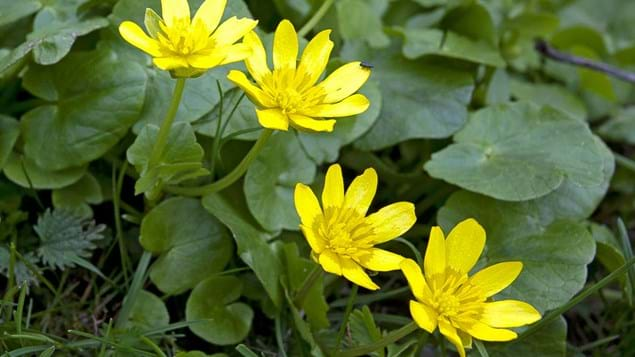Sickleholme Nature Notes
At the beginning of March, our main concern was how quickly we could be rid of the wet and windy weather that had restricted our golf so much. The only colour on the course coming from the last of the Snowdrops, the winter heathers and the first of the Daffodils. Little could we have imagined that by the end of the month the course would be completely closed and not because of the weather.
As we progressed from the meteorological first day of Spring to the traditional date things did improve quite quickly and, on the 6th, Anne Riddick was the first to report a Lesser Celandine (see photo image) in flower. This bright yellow, star shaped wildflower quickly became fairly abundant and the yellow theme was enhanced by Coltsfoot and Dandelions in a number of places and March Marigolds in the pond.
The first butterflies also appeared on the warmest days with reports of Small Tortoiseshell, Brimstone and Peacock. Also very noticeable was the number of large bees. I am no expert in that area, but I did recognise them as Bumblebees of which there are 22 species in the UK. They are related to hive or honeybees and do produce honey but only on a very small scale. The queens, who will have mated in the late summer, are the first to emerge in the early Spring with the intent of creating a new colony.
Patrick reported frogspawn in the feeder channel to the pond and bird song was much more evident with Chaffinches probably the most numerous. On the 16th, I watched a male Greenfinch singing in the car park. A relatively common species but, oddly, one that I couldn’t remember seeing at the club before.
And then it all went wrong and, despite some really hard work and welcome initiatives from the club’s officials and staff, things tapered down to complete closure. Amongst the many casualties of this was the first invertebrate survey by John Holliday and Trevor Hoyland which was to have taken place in the stream and pond. Let’s just hope that we can all look back on this sad period as quickly as possible but in the meantime, this may be the last of the wildlife notes.
Bryan Barnacle


